Is your marketing stack ready for 2025’s challenges? The marketing landscape is evolving rapidly, and businesses face a dizzying array of marketing tools promising to transform results.
With so many options, choosing the right marketing tools can feel overwhelming. Top brands now rely on cutting-edge solutions to drive growth, boost productivity, and unlock smarter insights.
This article spotlights 12 essential marketing tools that will elevate your strategy in 2025. From AI-driven platforms to analytics and automation, discover the must-have solutions to future-proof your marketing approach.
The Changing Marketing Technology Landscape in 2025
The marketing landscape in 2025 is defined by rapid evolution and constant innovation. The proliferation of marketing tools has transformed how businesses connect with their audiences, making adaptability more crucial than ever.
The Rise of AI and Automation
AI and automation are at the heart of this transformation. Major companies like Shopify and Microsoft are leading the charge, integrating AI-driven solutions to streamline their marketing operations. The shift from manual processes to automated, data-driven workflows has enabled marketers to respond faster to trends and personalize experiences at scale.
According to recent AI in marketing statistics and forecasts, over 70 percent of marketers now use AI-powered marketing tools for content optimization and campaign management. These tools offer capabilities such as predictive analytics, real-time sentiment analysis, and automated customer segmentation. Brands leveraging these innovations gain a clear competitive edge, responding to market changes with agility.
Integration and Unified Platforms
As marketing tools multiply, the need for integrated platforms has grown significantly. Marketers are moving away from fragmented solutions in favor of unified systems that bring together content management, analytics, and communication in one place. These integrated platforms not only simplify workflows but also ensure consistency across touchpoints.
Cross-channel marketing has become the norm, with businesses seeking tools that streamline omnichannel strategies. For example, platforms offering seamless integration between social media, email, and analytics enable marketers to deliver cohesive customer experiences. The result is a more efficient use of data, leading to smarter decisions and improved ROI.
Navigating Customer Complexity
Customer journeys are more complex than ever, spanning multiple channels and devices. Marketing tools that provide actionable insights are essential for mapping these journeys and identifying key decision points. Advanced analytics, powered by AI, help marketers understand behavior patterns and predict future actions.
Brands now rely on tools that deliver deep audience segmentation, real-time monitoring, and personalized recommendations. This level of insight allows for targeted campaigns that resonate with individual preferences, increasing engagement and conversion rates.
Choosing the Right Tools for 2025
With so many marketing tools available, selecting the right solutions is critical. Scalability, security, and user-friendly interfaces are top priorities for organizations planning for growth in 2025. The best tools are those that adapt to changing business needs, support seamless integration, and empower teams to work efficiently.
As the marketing technology landscape continues to evolve, businesses that invest in the right marketing tools will be best positioned to thrive in a competitive environment.
12 Essential Marketing Tools to Elevate Your Strategy in 2025
Selecting the right marketing tools in 2025 will make or break your strategy. With innovation accelerating, brands need tools that not only promise results but also deliver measurable ROI, adaptability, and seamless integration. Our curated list features 12 marketing tools that stand out for their innovation, versatility, and performance. These solutions span AI-driven content creation, analytics, automation, social media management, and more.
When choosing marketing tools, we considered their impact on productivity, scalability, and relevance for the modern marketer. If you want to explore more about how AI is shaping the landscape, check out these AI tools for marketing strategies.
Below, we spotlight each tool’s core features, pricing, benefits, and best use cases to help you find the right fit for your marketing stack.
1. Surfer SEO
Surfer SEO is a powerhouse among marketing tools for content optimization and search rankings. With pricing starting at $89 per month, it offers features like real-time SEO scoring, keyword research, SERP analysis, and a robust content editor. The audit tool provides actionable recommendations, ensuring your content aligns with the latest ranking factors.
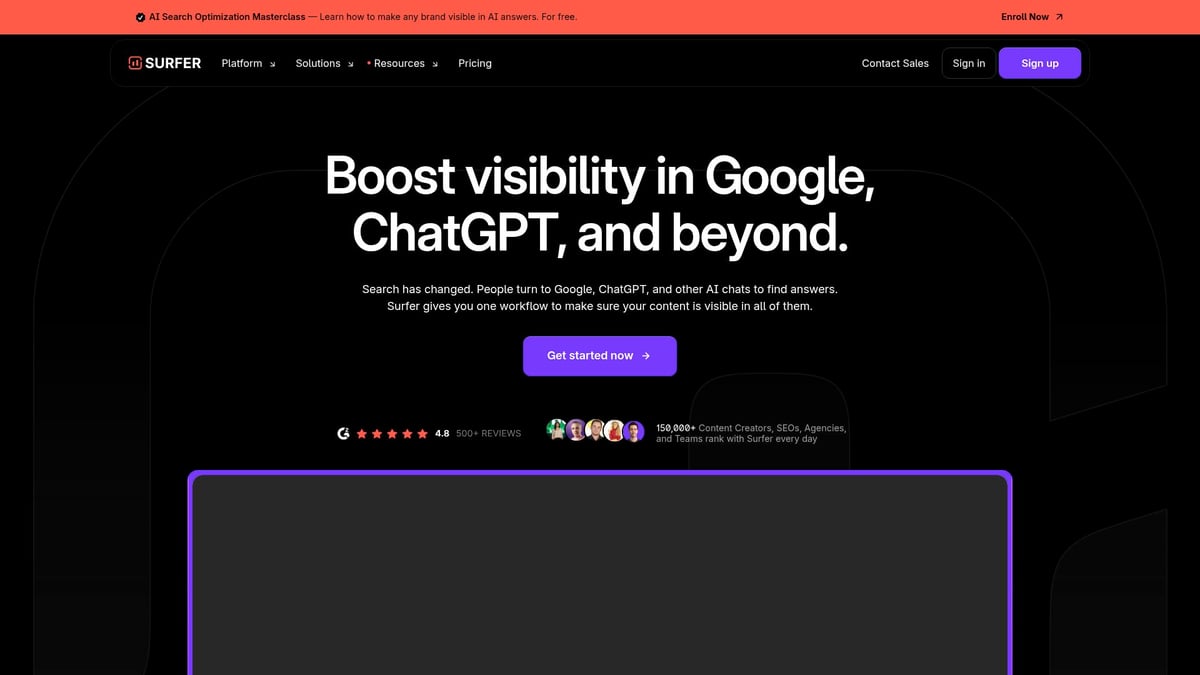
Content marketers and SEO specialists find Surfer SEO invaluable for its data-driven approach. Its integration with Google Docs and WordPress streamlines publishing workflows, while brands like FedEx and Shopify leverage it to scale organic growth.
Pros:
- Actionable, data-backed optimization
- Easy-to-use interface
- Boosts organic rankings
Cons:
- Learning curve for beginners
- Advanced features require higher-tier plans
Surfer SEO stands out for those seeking marketing tools that deliver measurable improvements in organic visibility.
2. Sprout Social
Sprout Social is one of the most comprehensive marketing tools for social media management. Starting at $249 per month, it offers centralized scheduling, advanced analytics, a smart inbox, and social listening. The platform’s robust reporting and multi-platform support make it ideal for social media managers, agencies, and enterprises aiming to refine their digital presence.
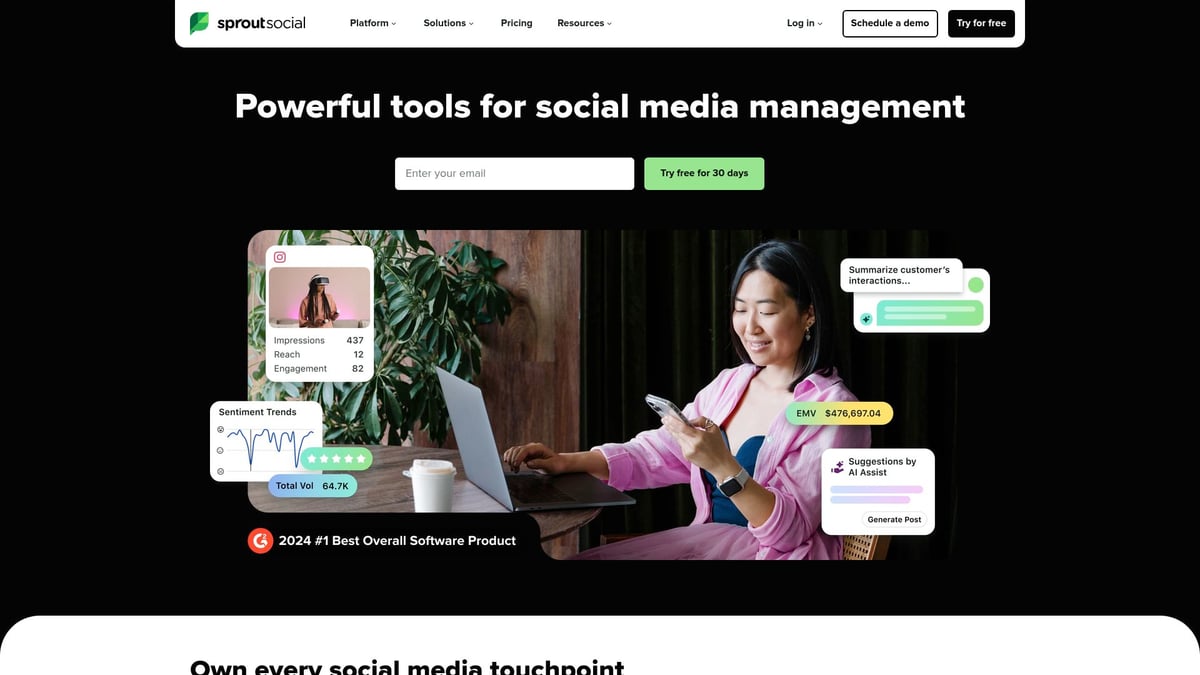
With an intuitive dashboard, Sprout Social enables real-time engagement and ROI tracking. Its team collaboration features help streamline workflows, but some premium features are reserved for higher plans.
Pros:
- Centralized platform for all channels
- Deep analytics and reporting
- Supports multiple profiles
Cons:
- Higher price point
- Some features locked behind advanced plans
Sprout Social is a top pick among marketing tools for brands focused on maximizing their social reach and insights.
3. Jasper AI
Jasper AI is redefining content creation among marketing tools, with plans starting at $49 per month. This AI-powered copywriting platform generates high-quality content for blogs, ads, and emails. It offers brand voice customization, a wide selection of templates, and supports team collaboration.
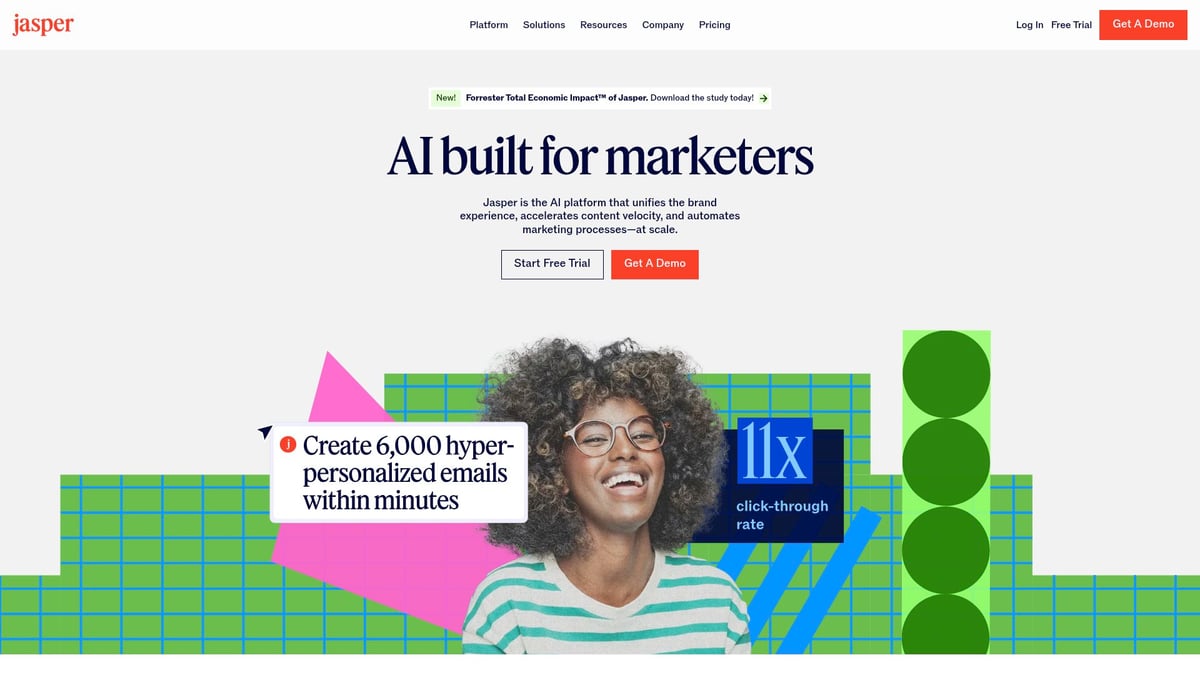
Jasper AI accelerates content production, allowing marketers to scale output without sacrificing quality. However, outputs may need human editing to ensure tone and accuracy.
Pros:
- Rapid content generation
- Extensive template library
- Team workflows supported
Cons:
- Content may lack nuance without customization
- Human review required
Ecommerce and SaaS brands use Jasper AI to maintain a steady stream of branded content, making it a must-have in the marketing tools arsenal.
4. Loomly
Loomly is a user-friendly addition to the suite of marketing tools for social media planning. Starting at $42 per month, it provides a collaborative calendar, content suggestions, workflow management, and analytics. Small teams and agencies favor Loomly for its affordability and simplicity.

The platform streamlines content planning and ideation, though advanced analytics are limited on lower plans. Agencies use Loomly to optimize posting schedules and keep content fresh with trend-driven ideas.
Pros:
- Affordable entry point
- Supports multiple platforms
- Easy collaboration
Cons:
- Basic reporting on starter plans
- Limited advanced analytics
Loomly stands out as a practical marketing tools solution for efficient social management.
5. Notion AI
Notion AI enhances productivity in marketing tools ecosystems, with AI add-ons priced at $8–$10 per user per month. Features include AI-powered search, writing assistance, brainstorming, and seamless data organization. Notion AI integrates with project management and campaign planning, making it a favorite for marketing teams and content strategists.
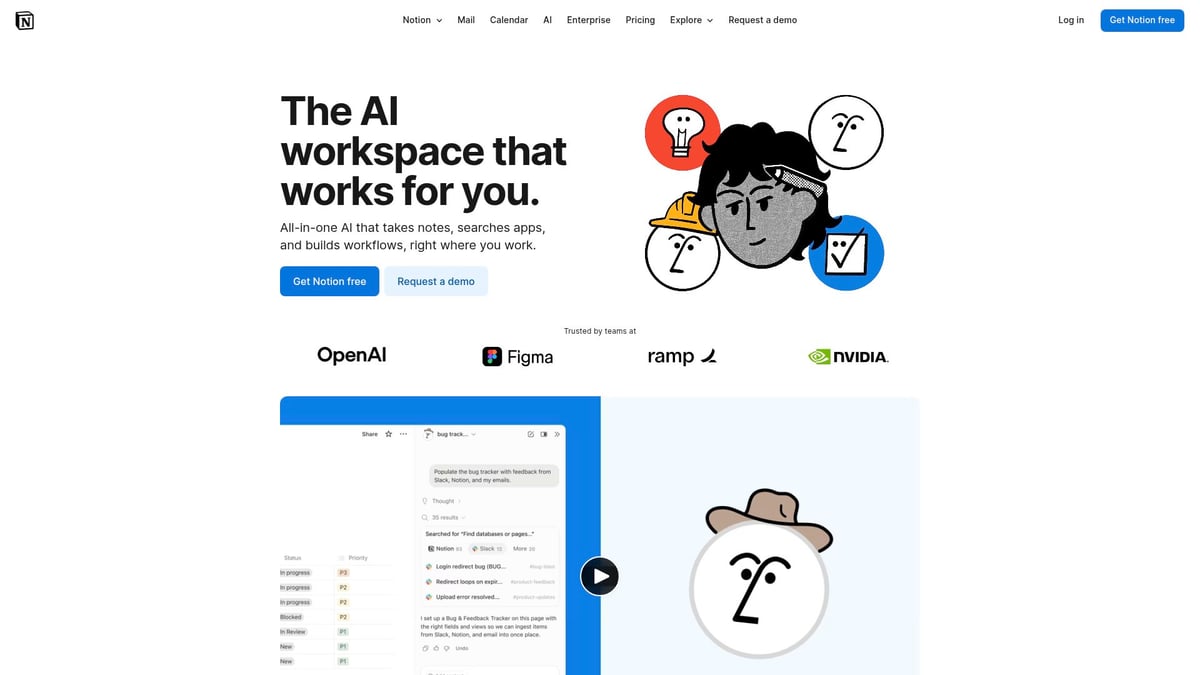
The platform automates repetitive tasks and boosts workflow efficiency, though its AI features are limited to the Notion ecosystem and require a paid plan.
Pros:
- Seamless integration with Notion workspace
- Privacy-focused design
- Enhances team productivity
Cons:
- Only works within Notion
- Paid AI features
Notion AI is a standout among marketing tools for teams seeking streamlined planning and knowledge management.
6. Audiense
Audiense is a specialist among marketing tools for social audience segmentation and Twitter analytics. With a free tier and paid plans from $39 per month, it offers deep audience insights, influencer identification, and actionable segmentation.
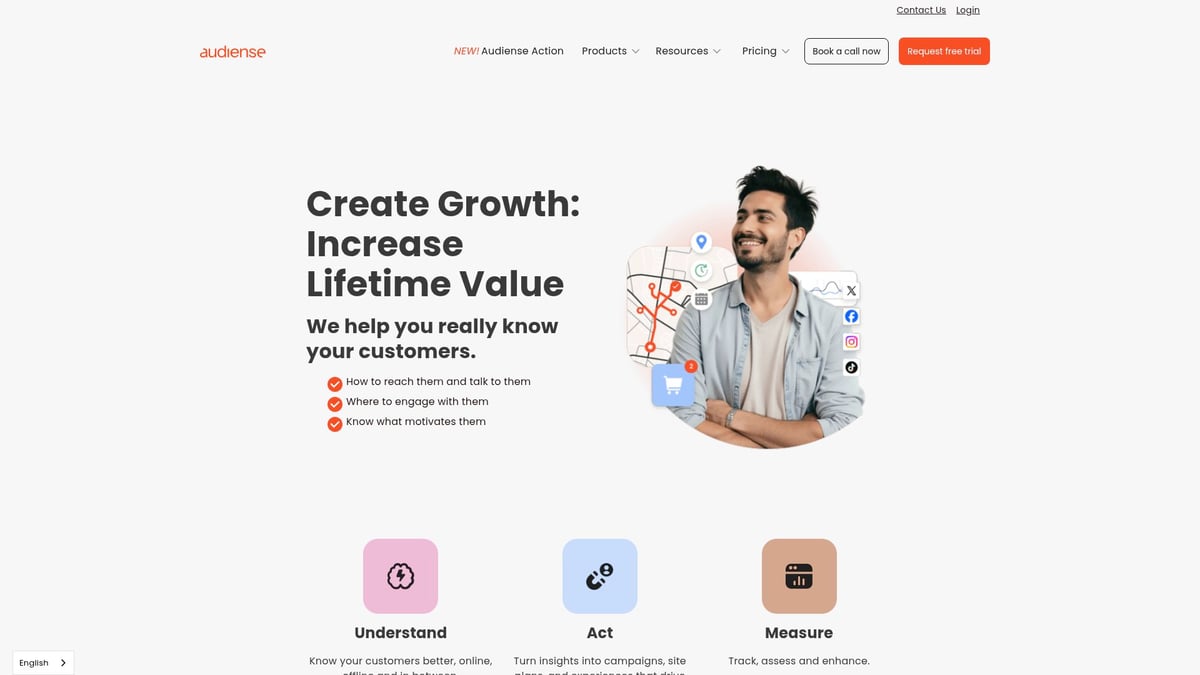
Audiense excels in refining customer personas and improving campaign targeting. While its primary focus is Twitter, it offers powerful analytics for marketers seeking precise audience data.
Pros:
- Powerful segmentation tools
- Actionable insights
- Easy Twitter integration
Cons:
- Limited coverage of non-Twitter platforms
- Some features require a paid plan
Brands use Audiense to run targeted ads and fine-tune their messaging, making it a crucial marketing tools option for social strategists.
7. Gumloop
Gumloop brings AI workflow automation to the forefront of marketing tools. With a free plan and paid options starting at $29 per month, it connects with Notion, Slack, and other platforms, automating repetitive tasks without coding.
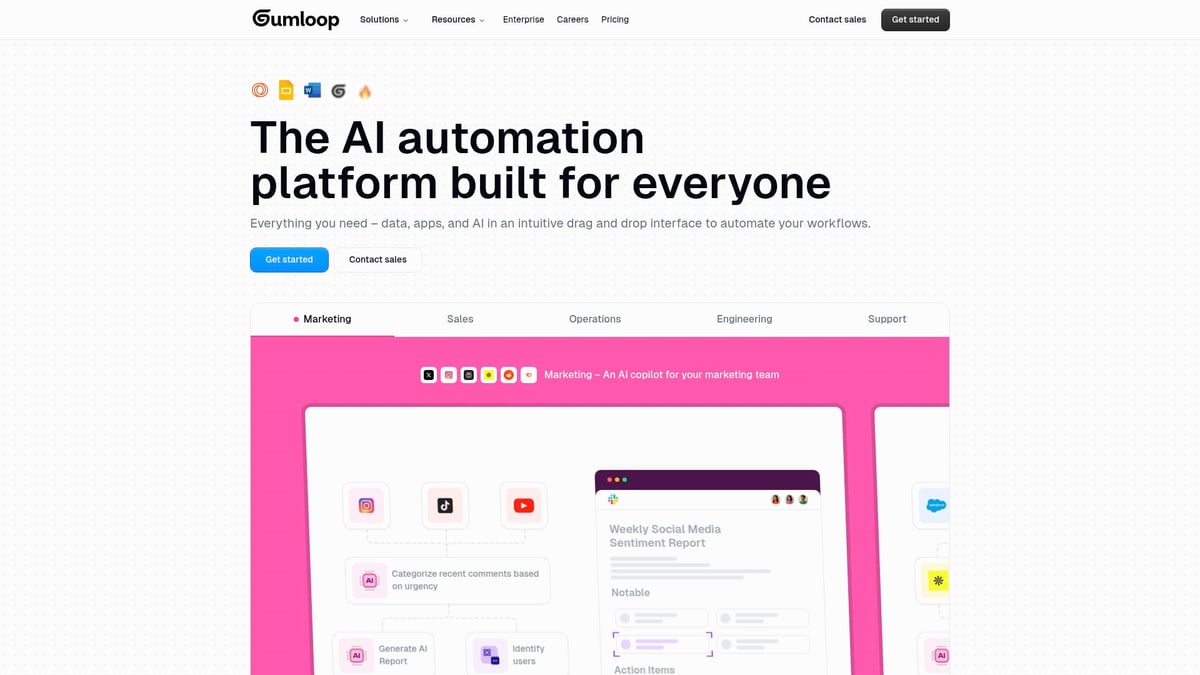
Gumloop supports web and app scraping, continuous agents, and built-in access to top AI models. Initial setup is required, and some advanced features are only available on higher plans.
Pros:
- No-code automations
- Scalable workflows
- Integrates with popular tools
Cons:
- Initial configuration needed
- Advanced features cost extra
Instacart and Shopify use Gumloop for sales research and admin automation, making it a valuable addition to your marketing tools stack.
8. FullStory
FullStory is a leader among marketing tools for digital experience analytics. With custom pricing, it provides session replay, conversion funnels, and heatmaps, helping teams visualize user journeys and identify friction points.
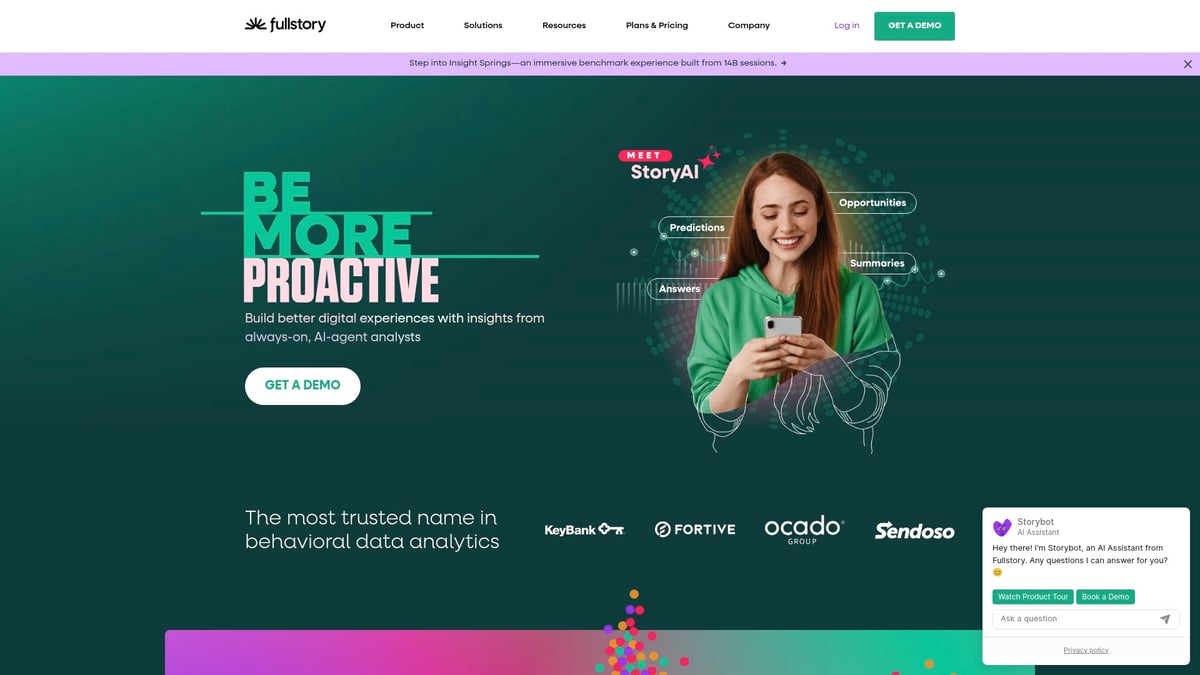
Digital marketers and UX teams rely on FullStory to boost conversion rates and optimize landing pages. While setup may require technical support, its dashboards offer deep behavioral insights.
Pros:
- Comprehensive user journey analysis
- Easy-to-read dashboards
- Improves conversion rates
Cons:
- Pricing not public
- Technical setup may be needed
FullStory empowers brands to make data-driven decisions, making it a must-have in advanced marketing tools lineups.
9. Brand24
Brand24 is a robust media monitoring tool among marketing tools, starting at $99 per month. It offers sentiment analysis, influencer tracking, real-time alerts, and multi-language support.
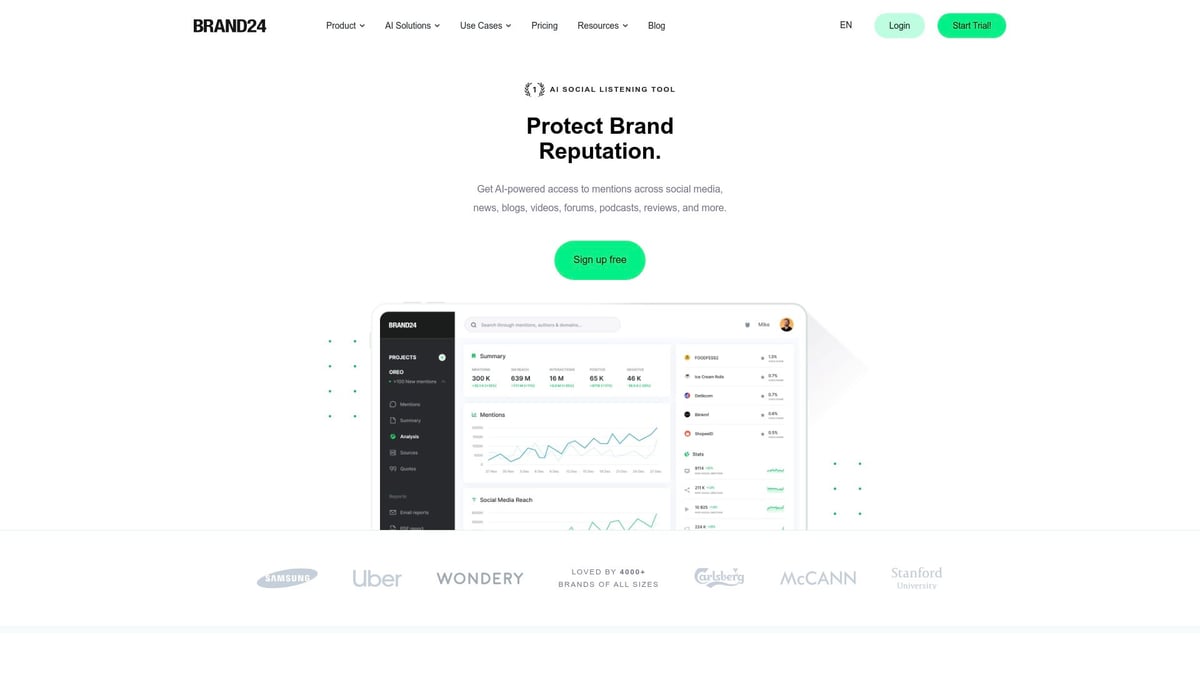
PR teams and social media managers use Brand24 for brand reputation management and campaign tracking. While the platform excels in real-time monitoring, lower-tier plans have limited historical data.
Pros:
- Real-time brand monitoring
- Detailed analytics
- Multiple language support
Cons:
- Limited historical data unless on higher plans
- Can be overwhelming for small businesses
Brand24 is a trusted choice in marketing tools for proactive reputation management.
10. ContentShake AI
ContentShake AI streamlines blog creation among marketing tools, with plans starting at $60 per month. It leverages AI to generate blog drafts, provide SEO recommendations, and assist with content planning.
Agencies and content marketers appreciate its integration with SEO tools and ability to produce high-quality drafts quickly. While limited to blog content, ContentShake AI ensures SEO best practices are followed.
Pros:
- Easy blog creation
- SEO recommendations built-in
- Integrates with popular tools
Cons:
- Limited to blog content
- Requires human review for tone
Agencies rely on ContentShake AI to scale content for multiple clients, making it a practical marketing tools solution.
11. Zapier
Zapier is a staple in the world of marketing tools, offering workflow automation and integration with over 5,000 apps. With a free tier and paid plans from $19.99 per month, Zapier automates lead capture, email marketing, and reporting.
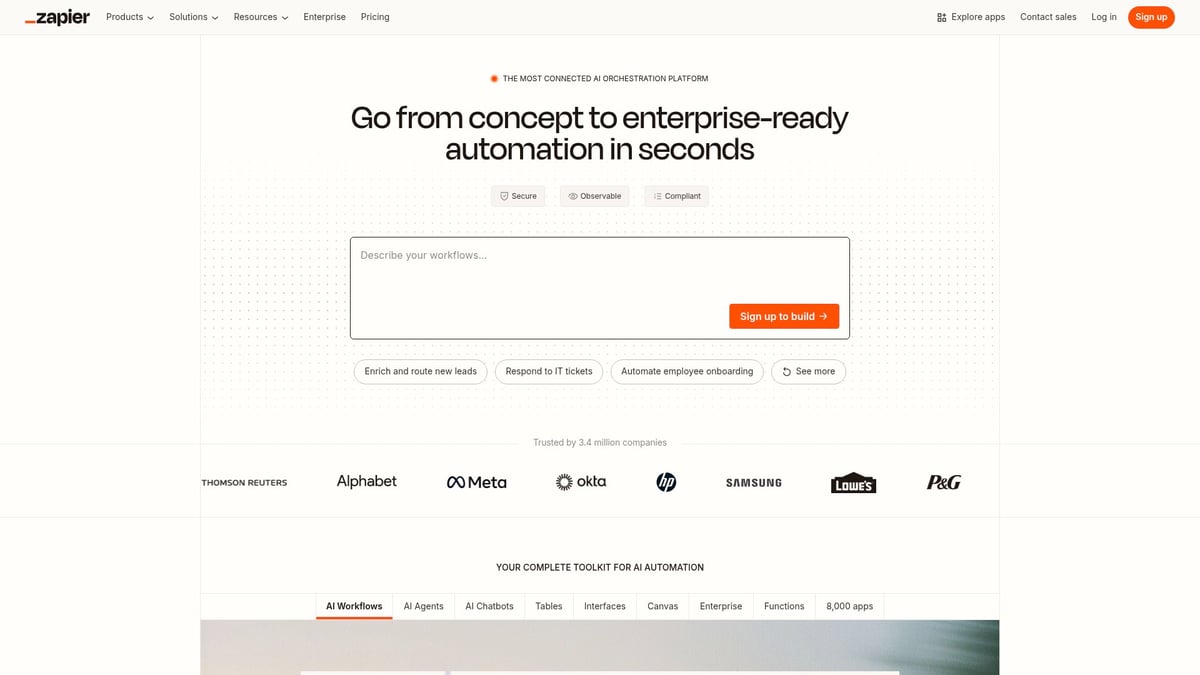
No coding is required, and its extensive integration library makes it ideal for marketers and small businesses. However, costs can rise as workflows scale, and some integrations have limitations.
Pros:
- No-code automation
- Huge integration library
- Flexible triggers and actions
Cons:
- Can become expensive as needs grow
- Occasional integration issues
Zapier is essential for connecting disparate marketing tools, boosting productivity across teams.
12. Grammarly
Grammarly remains one of the most popular marketing tools for copy refinement. With a free version and Premium plans starting at $12 per month, it offers AI-powered grammar checks, tone detection, and a plagiarism checker.
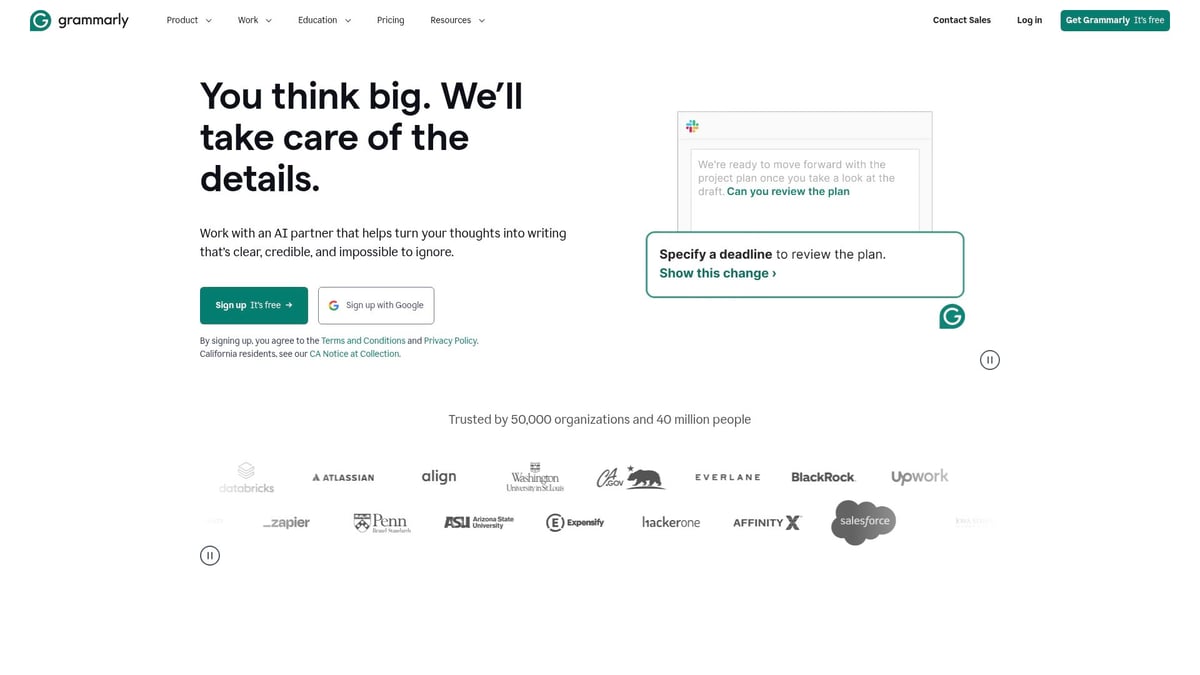
Content creators and marketers use Grammarly to polish email campaigns, blog posts, and social media copy. Advanced features require a premium plan, and occasional false positives may occur.
Pros:
- Real-time suggestions
- Integrates with browsers and apps
- Detailed writing feedback
Cons:
- Premium needed for full features
- Occasional errors in correction
Grammarly ensures consistent, professional communication, making it a must-have tool in any marketing tools suite.
How to Choose the Right Marketing Tools for Your Business
Selecting the right marketing tools in 2025 can feel like navigating a maze. With a flood of new options and technologies, clarity is essential for building a stack that truly drives results.
Define Your Objectives and Needs
Begin by outlining your business objectives. Are you aiming to boost lead generation, improve customer retention, or streamline content creation? Clarify your goals before reviewing marketing tools, as this shapes your criteria for selection.
Next, assess your team's workflow. Map out existing processes and identify gaps where automation, analytics, or AI could add value. For instance, many businesses are now prioritizing automation marketing tools to reduce manual tasks and increase efficiency.
Evaluate Key Criteria: Scalability, Integration, and Support
When comparing marketing tools, focus on scalability. Can the tool grow with your business? Check if it accommodates more users, data, or channels as you expand.
Integration matters just as much. Opt for solutions that fit seamlessly with your current platforms, like CRM, email, or analytics systems. User support is another priority. Look for responsive customer service, active help centers, and strong onboarding materials.
Free vs. Paid: Assessing ROI and Fit
Choosing between free and paid marketing tools depends on your requirements and resources. Use the table below to guide your evaluation:
| Feature | Free Tools | Paid Tools |
|---|---|---|
| Functionality | Basic | Advanced |
| User Limits | Often restricted | Scalable |
| Support | Community-based | Dedicated support |
| Integrations | Limited | Extensive |
| Analytics | Simple reports | In-depth, customizable |
Paid tools offer more advanced features, better support, and robust integration. However, free tools can be a smart starting point for small teams or pilot projects.
Tailor to Team Size and Workflow Compatibility
Consider your team's technical expertise. User-friendly interfaces are vital for non-technical staff, while power users may need customization and automation capabilities. Match the tool's complexity to your team's skills to ensure smooth adoption.
Workflow compatibility is equally important. Ensure the tool aligns with how your team collaborates, shares data, and tracks progress.
Pilot, Measure, and Optimize
Before committing long-term, pilot new marketing tools with a small group. Collect feedback, monitor usage, and measure impact against your objectives.
Remember, companies leveraging integrated marketing stacks report up to 25% higher productivity. Use data to guide decisions, and optimize your stack regularly as your needs evolve.
Choosing the right marketing tools is not a one-time event. With the right approach, you will build a toolkit that grows with your business, keeps your team agile, and drives real marketing results.
Maximizing ROI: Best Practices for Integrating Marketing Tools
Achieving maximum ROI from your marketing tools depends on more than just selecting the right platforms. True value comes from how seamlessly these solutions work together within your marketing stack. Integration is the foundation for efficiency, data accuracy, and better decision-making.
Strategies for Seamless Integration
To unlock the full potential of marketing tools, prioritize solutions that offer robust integration capabilities. Look for platforms that provide APIs, native integrations, and compatibility with automation services like Zapier. This approach enables you to connect tools for tasks such as syncing CRM data, automating lead capture, or aligning content workflows.
Unified analytics is another key advantage. When data from multiple marketing tools is centralized, teams gain a holistic view of customer journeys. For example, combining Surfer SEO insights with ContentShake AI content production allows you to create, optimize, and publish high-performing content without manual data transfers.
Below is a quick reference table for integration options:
| Integration Type | Benefits | Example Use Case |
|---|---|---|
| API Connections | Customizable, scalable | CRM and email automation |
| Native Integrations | Fast setup, minimal configuration | Social media scheduling |
| Automation Platforms | Cross-tool workflow automation | Lead capture, reporting |
Overcoming Challenges in Tool Integration
Integrating marketing tools is not without its hurdles. Data silos can arise when platforms do not communicate effectively, leading to fragmented insights. To counter this, choose tools with proven interoperability and invest in middleware solutions if needed.
User adoption is another common challenge. Training is essential to ensure the team understands new workflows and features. Encourage open feedback and provide resources, such as tutorials or onboarding sessions, to smooth the transition.
Resistance to change can slow the adoption of integrated marketing tools. Promote early wins by showcasing time saved and improved outcomes, fostering a culture of continuous improvement.
Continuous Optimization for Maximum ROI
Maximizing ROI is an ongoing process. Schedule regular reviews of your marketing tools and workflows to identify new integration opportunities and retire outdated solutions. Monitor KPIs closely, and adjust your stack as business needs evolve.
Integrated tech stacks can reduce time spent on manual tasks by up to 40%. To ensure best results, align your integration strategy with proven marketing processes and best practices. This approach supports continuous improvement and keeps your team agile in a rapidly changing landscape.
In summary, seamless integration, proactive training, and ongoing optimization are essential for getting the most out of your marketing tools. By following these best practices, you can build a future-proof stack that delivers measurable ROI.
